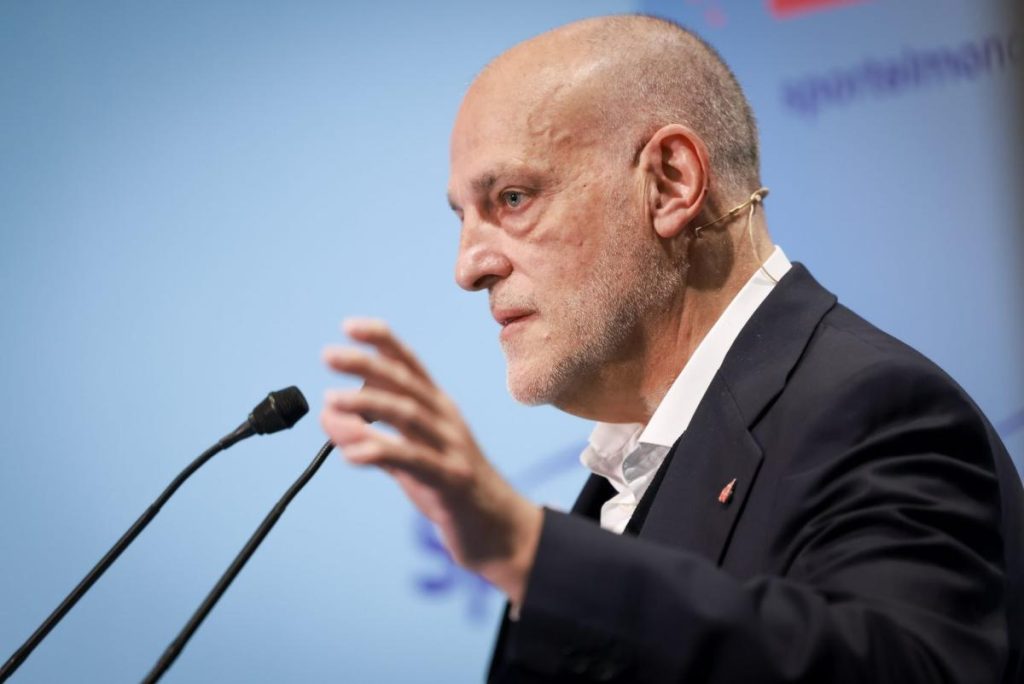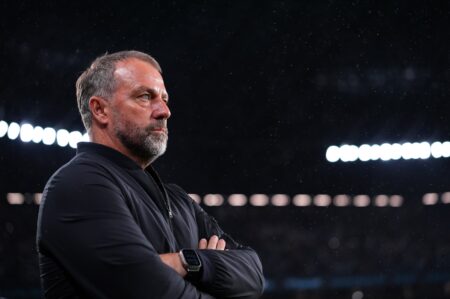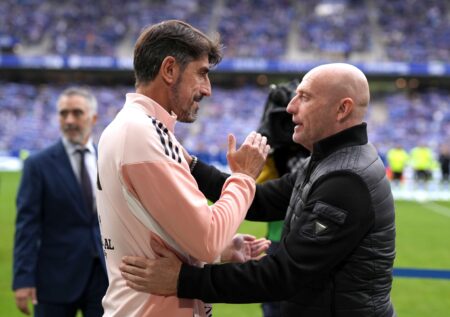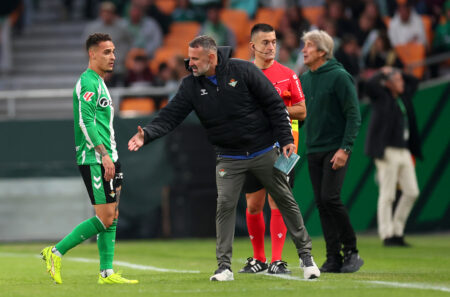La Liga President Responds to Ancelotti’s Comments
La Liga president Javier Tebas wasted no time in addressing Real Madrid manager Carlo Ancelotti’s remarks made during a pre-derby press conference against Atletico Madrid. Ancelotti, known for his calm and composed demeanor, expressed his frustration with Tebas’s earlier outburst, where he accused Real Madrid of losing their minds and attempting to manipulate and pressure referees with their statements and RMTV videos. Ancelotti’s response was clear and measured, urging Tebas to remain calm and pointing out that the club’s requests for explanations were not out of line. He highlighted that many within the football community believe the refereeing system favors Real Madrid, and when the club seeks changes, they face opposition. This back-and-forth between two influential figures in Spanish football underscores the ongoing tension surrounding the integrity of the refereeing system.
Tebas Emphasizes the Integrity of Spanish Football
In a tweet that quickly went viral, Tebas responded to Ancelotti’s plea for calm, writing, “Carlo, stay calm… The Spanish competition is not adulterated, and we all want improvements in the organisation of refereeing, and we have been demanding them for some time.” Tebas’s message was a clear reaffirmation of his belief in the fairness of the league. He emphasized that concerns about the refereeing system are shared by many, and efforts to improve it have been ongoing. Tebas’s tone, while firm, seemed to acknowledge the legitimacy of some of Ancelotti’s points, suggesting a more collaborative approach to addressing the issues.
Historical Context and Real Madrid’s Role
However, Tebas did not let Ancelotti’s comments go unchallenged. He pointed out a curious inconsistency in Real Madrid’s stance, noting that the club was a part of the Board of Directors of the Royal Spanish Football Federation (RFEF) until November 2023, a period during which the “Negreira” case had already been publicized. For those unfamiliar, the “Negreira” case involved allegations of improper refereeing practices, which sparked widespread controversy and calls for reform. Tebas questioned why Real Madrid, which is now so vocal about refereeing issues, did not raise a single concern or propose any changes during its time on the RFEF board. This historical context adds a layer of complexity to the current debate, suggesting that Real Madrid’s recent activism might be viewed with a skeptical eye by some.
The Role of RMTV in the Controversy
Tebas further highlighted the role of Real Madrid TV (RMTV) in the controversy. He noted that RMTV had been producing videos analyzing refereeing performances, which he described as “objective” but which many perceive as biased. These videos, often critical of referees, have been a source of contention, with critics arguing that they unduly influence public and media perception. Tebas’s comment about RMTV’s “objective” videos being a form of continued delight for the club, despite the ongoing issues, suggests a subtle accusation of hypocrisy. It implies that Real Madrid has been using these videos to shape narratives in their favor, even as they call for changes in the refereeing system.
The Ownership Model and La Liga’s Independence
Tebas also addressed the club’s recent push for changes in the ownership model of La Liga, a topic that has been fraught with tension and disagreement. Real Madrid, along with a few other clubs, has been vocal about their desire to see a different structure for La Liga, claiming that the current system is unfair and lacks transparency. Tebas dismissed these claims, stating that the supposed “expropriation” of La Liga is no longer a believable excuse. He suggested that Real Madrid and others might be using this theory as a smokescreen to avoid addressing their own lack of action and accountability. Tebas’s skepticism is rooted in the club’s past behavior and their current stance on various issues.
Moving Forward: A Call for Collaboration
While the exchange between Tebas and Ancelotti has certainly added fuel to the fire, it also highlights the need for a more collaborative approach to addressing the challenges in Spanish football. Both parties acknowledge that improvements are necessary, but their methods of achieving these improvements differ significantly. Tebas’s suggestion that the Spanish competition is fair, coupled with his call for continued demands for improvement, represents a balanced perspective. Ancelotti’s frustration, while understandable, might be better directed toward constructive dialogue and action. The ongoing debate serves as a reminder that transparency, accountability, and a willingness to listen are crucial for the health and integrity of the sport. As the derby approaches, it remains to be seen how these tensions will play out, but one thing is certain: the eyes of the football world will be on Spain.











